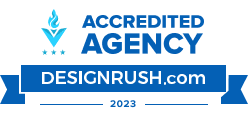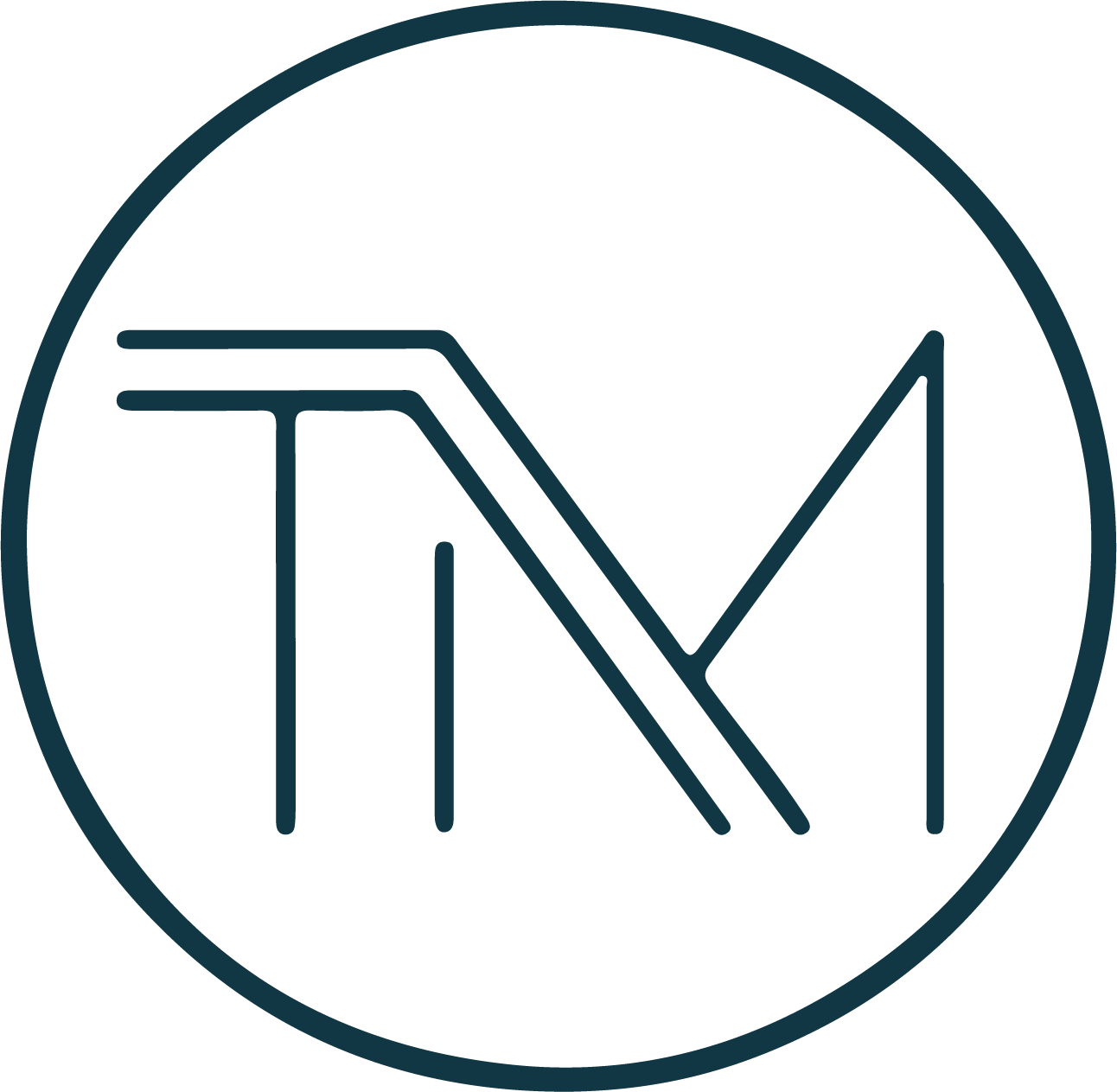Get in touch
555-555-5555
mymail@mailservice.com
The Complete SEO Guide For Therapists for 2024 WITH Actionable Steps

The in the world we live in today, visibility on the internet is crucial for therapists who want to attract new clients and grow their practice. While traditional marketing methods still have a place, mastering Search Engine Optimization (SEO) can offer your therapy practice a significant edge. By incorporating effective SEO strategies, you can boost your online presence, enhance client engagement, and ultimately, increase your client base. But how can therapists navigate the often confusing world of SEO to achieve these goals?
Ever wonder why some therapist websites seem to pop up at the top of search results while others languish in obscurity?
Key Takeaways
- Boost Website Visibility: SEO increases the chances of your website appearing in search results, driving more traffic
- Cost-Effective Marketing: Organic search results provide a more economical marketing strategy compared to paid ads
- Build Trust and Credibility: A robust online presence fosters trust and credibility among potential clients
- Competitive Edge: Effective SEO strategies help therapists stand out from the competition
- Improved User Experience: SEO enhances website usability, making it easier for clients to find necessary information
Understanding the Importance of SEO for Therapists
SEO is not just a set of technical tricks. It's a holistic strategy to make your website more attractive to search engines and, by extension, potential clients.
Benefits of SEO for Therapists
SEO can drastically elevate your therapy practice's online visibility, making it easier for potential clients to find you. Increased visibility means more traffic to your website, where you can convert visitors into clients. Traditional marketing for therapists is often expensive and can drain resources without guaranteed results. In contrast, ranking high in organic search results is a cost-effective strategy to attract a steady stream of potential clients over time.
A well-optimized website builds trust and credibility, making potential clients more likely to seek your services. Therapists often deal with sensitive issues, and a professional, easily navigable site speaks volumes about your reliability. Better SEO generally means higher rankings on search engine results pages (SERPs). The higher your site ranks, the more traffic you get, thus increasing the likelihood of conversions. Effective SEO leads to web design improvements that also enhance user experience, ensuring visitors spend more time on your site.
Impact of SEO on Therapist Websites
SEO improves the overall user experience by making your website easier to navigate and more informative. This effort aligns perfectly with Google's algorithms, which favor websites that provide a smooth, user-friendly experience. Search engines prioritize well-optimized therapist websites, meaning that your investment in SEO translates into higher search rankings and increased visibility. This is where therapist SEO experts can provide invaluable guidance.
High-quality content that's aligned with your SEO strategy ensures that your site remains relevant to both search engines and your audience. Content structured around well-researched keywords for therapists can organically engage your target market. Without a solid SEO strategy, your therapy practice might struggle to compete with other local services. With SEO, you not only compete but can outshine competitors, attracting more clients to your therapy practice.
Conducting Keyword Research for Therapist Websites
Keyword research forms the crux of any effective SEO strategy. It involves identifying the specific terms potential clients use when searching for therapy services online.
Importance of Keyword Research for Therapists
Keyword research identifies the terms and phrases potential clients use when looking for therapy services, allowing you to tailor your content to match those queries. Accurate keywords improve your site's search engine ranking and visibility, making it easier for clients to find your services. Understanding the keywords and SEO concepts ensures that your content meets client needs, enhancing its effectiveness.
Effective keyword research also assists you in understanding client behavior and preferences, offering insights that can be used to refine your services. A comprehensive keywords list is a good starting point for any therapist looking to optimize their online presence. By integrating these targeted words into your content, your site becomes more attractive to search engines and better aligned with what potential clients are searching for. Thrive in the digital arena by continually updating and refining your keyword strategy based on current trends and data insights.
Tools for Conducting Keyword Research for Therapist Websites
Google Keyword Planner offers invaluable insights into the popularity and competitiveness of keywords related to therapy. This tool allows you to tailor your content to target high-traffic keywords effectively. SEMrush is excellent for analyzing your competitors' keyword strategies, helping you identify gaps and opportunities within your own approach. With its extensive keyword research and ranking data, Ahrefs provides a comprehensive guide to optimizing your content for search engines.
For those new to SEO, tools like Ubersuggest simplify the research process, providing actionable keyword suggestions and data. Scout Suggest is another useful resource for identifying keywords that can boost your website's visibility. By leveraging these tools, therapists and SEO specialists can develop a robust keyword strategy that aligns with their business goals. Use the gathered data to optimize title tags, meta descriptions, and the overall content on your site to attract more traffic and convert visitors into clients.
Implementing On-Page SEO Strategies for Therapists
On-Page SEO refers to optimizing individual pages of your website to improve their search engine rankings.
Best On-Page SEO Practices for Therapist Websites
Creating high-quality, relevant content is crucial for keeping users engaged and increasing the time they spend on your website. When your content is valuable and well-structured, it not only helps with search engine rankings but also positions you as an authority in your field. Proper URL structures are vital for improving your site's crawlability by search engines, making your website more accessible and easier to index. A well-organized URL can significantly impact your page SEO.
Using headers and subheaders (H1, H2, H3) effectively organizes your content, making it easy for users to navigate and understand. This organization improves readability and also signals the importance of the content to search engines. Mobile optimization is essential in today's mobile-first indexing world. Users access websites from a variety of devices, and ensuring that your site looks and performs well on all of them is crucial for both user experience and SEO in 2024 and beyond.
Optimizing Meta Tags and Content for Therapist SEO
Meta titles and descriptions should include primary keywords related to your therapy practice, ensuring that they are both descriptive and engaging to attract clicks. Unique meta tags for each page enhance visibility and provide search engines with clear information about the content of your site. Incorporating keywords naturally into your content is paramount. Overstuffing keywords can lead to penalties, so maintain a conversational tone while integrating essential terms.
Using alt text for images not only supports SEO by providing additional information to search engines but also makes your site more accessible to visually impaired users. Meta descriptions, when done right, help search engines understand the content and context of your pages, improving your site's search intent alignment. A specialized therapist SEO company can offer invaluable insights into crafting effective meta tags and optimizing content, ensuring your website stands out in search results.
Utilizing Technical SEO for Optimizing Therapist Websites
Technical SEO focuses on the behind-the-scenes aspects of your website that make it easy for search engines to crawl and index your pages.
Importance of Technical SEO for Therapists
Technical SEO improves your website's speed and overall performance, which are critical factors for user experience and search engine rankings. A fast-loading website ensures that potential clients don't get frustrated and leave before exploring your services. Proper technical SEO ensures that search engines can index your website content easily, improving your search result rankings. This involves using sitemaps, robots.txt files, and other tools to make your site more accessible to search engines.
Security is another essential aspect. Websites using HTTPS are seen as more trustworthy, which can instill confidence in potential clients. Moreover, technical SEO helps fix broken links and other issues that could negatively impact user experience and site performance. SEO experts emphasize resolving these technical issues to maintain the health of your website and keep it optimized for both users and search engines.
Technical SEO Checklist for Therapist Websites
Ensure your website is mobile-friendly and responsive to provide a seamless experience across all devices. With the increasing use of mobile devices for internet searches, this is non-negotiable. Improving page load times can significantly enhance user experience. Faster-loading pages reduce bounce rates and encourage users to stay longer on your site. Use schema markup to provide search engines with structured data about your content. This enriched data can help search engines understand the context of your pages better, improving your rankings.
Regularly updating and submitting your XML sitemap to search engines ensures that your most important pages are crawled and indexed. This proactive approach to SEO strategies helps maintain your site's visibility. For local SEO, it's crucial to have consistent NAP (name, address, phone number) information across your listings. Engage therapist SEO experts to regularly audit your site, ensuring it adheres to the latest technical SEO guidelines.
Building Quality Backlinks for Therapist SEO
Backlinks, or inbound links from other websites to yours, play a critical role in SEO.
Importance of Backlinks for Therapists
Quality backlinks can significantly improve your website's domain authority and credibility. When other reputable sites link to your content, search engines view your site as trustworthy and relevant. Backlinks also drive referral traffic to your website, increasing the number of potential clients who might not have found you through search engines alone. They act as endorsements from other sites, boosting both your online reputation and search engine rankings.
Strategic backlink building can greatly enhance your online reputation. Engaging in social media marketing and other outreach efforts to secure quality links is key for SEO success. Predictions about SEO trends constantly emphasize the importance of backlinks as a key ranking factor. The more authoritative backlinks your therapist website secures, the better your chances of climbing up the SERPs.
Strategies for Building Quality Backlinks for Therapist SEO
Network with local businesses and exchange backlinks. Mutual collaborations can be beneficial for both parties involved. For example, a therapist can team up with local wellness centers or gyms to provide content and, in return, get a backlink. Guest blogging on reputable mental health websites is another effective strategy. By sharing your expertise, you can gain visibility and earn a backlink to your site.
Engage in online therapy directories and listings. Many clients turn to these platforms to find trusted therapists, and having a presence there can drive both backlinks and traffic. Create shareable content that encourages backlinks. High-quality articles, infographics, and videos can naturally attract backlinks as they get shared across various platforms. Utilize a reputable SEO company to help guide your backlink strategy with comprehensive link-building services tailored to therapists.
Enhancing Local SEO for Therapist Practices
Local SEO optimizes your online presence to attract more business from relevant local searches.
Importance of Local SEO for Therapists
Local SEO targets clients searching for nearby therapy services, ensuring you appear in local search results. Accurate local SEO efforts boost your visibility and make it easier for potential clients to find you. For therapists, local SEO can significantly increase foot traffic to physical therapy practices. When people search for therapy services in your area, a well-optimized local SEO strategy ensures your practice shows up prominently.
Client reviews and ratings also enhance your local search rankings. Positive reviews not only boost your visibility but also establish trust and credibility among potential clients. SEO specialists recommend focusing on local SEO as a primary strategy for therapists looking to attract clients from their immediate vicinity. Transitioning to this focus can yield quick and impactful results for your therapy practice.
Local SEO Tips for Therapist Practices
Claim and optimize your Google My Business listing. This free tool is a powerful local SEO asset that allows you to manage how your business appears in local search results. Ensure consistency in your NAP information across all online listings. Inconsistent information can confuse search engines and negatively impact your local SEO rankings. Encourage satisfied clients to leave positive reviews on platforms like Google. These reviews can significantly boost your standing in local search results and attract more clients.
Use local keywords in your content. Incorporating your city or neighborhood names naturally within your content can improve your local SEO performance. SEO specialists often recommend creating specific landing pages for different locations you serve to better target local clients. These strategies can help elevate your therapy practice's visibility in local searches and drive more traffic to your site.
Choosing the Right SEO Services for Therapists
Selecting the right SEO provider can make or break your online marketing efforts.
Factors to Consider When Choosing SEO Services for Therapists
Look for SEO providers with experience in the mental health field. A provider familiar with therapist SEO knows the specific challenges and opportunities within this niche. Assess the provider's track record and client testimonials to gauge their success rate and reliability. This due diligence helps you choose an SEO partner that can deliver results. Consider the range of services offered, including content creation, technical SEO, and local SEO. A comprehensive guide to SEO should cover all these areas to ensure a holistic approach.
Ensure the SEO provider uses ethical, "white-hat" techniques to avoid penalties from search engines. Unethical tactics can lead to severe repercussions and damage your online reputation. Engage with SEO experts who are transparent about their strategies and provide regular updates on progress. This level of communication builds trust and ensures alignment with your business goals.
Types of SEO Services Suitable for Therapists
On-page SEO services focus on optimizing content and site structure. These services include content marketing, keyword optimization, and proper use of meta tags. Technical SEO services enhance your website's performance and compliance with search engine guidelines. This includes improving site speed, ensuring mobile-friendliness, and fixing technical issues. Local SEO services are crucial for therapists aiming to attract clients from a particular geographic area. These services enhance your visibility in local searches and drive more foot traffic to your practice.
Content marketing services develop relevant, high-quality content that resonates with your audience. Consistently updated content keeps your site fresh and engaging. Different SEO strategies come together to form a comprehensive approach that improves your overall online presence. Partner with an SEO company specializing in therapy to leverage these services effectively.
Working with a Therapist SEO Company
Hiring a professional SEO company can streamline your SEO efforts and provide expert guidance.
Benefits of Hiring a Therapist SEO Company
Professional SEO companies can boost your website's ranking faster by implementing proven strategies and keeping up with the latest industry changes. This expertise can lead to quicker and more significant improvements in your search engine rankings. SEO specialists stay updated with the latest industry changes, ensuring that your website remains compliant and optimized for the most recent algorithms. Outsourcing SEO allows therapists to focus on their practice, providing quality care to clients instead of worrying about technical SEO details.
Experienced companies provide tailored SEO strategies for therapists, considering the unique needs and goals of your practice. This personalized approach ensures that your SEO efforts align with your business objectives. Engaging a reputable therapist SEO company can significantly enhance your online visibility and attract more clients. The benefits of hiring experts outweigh the cost, especially considering the potential return on investment.
How to Choose the Right Therapist SEO Company
Research companies specializing in therapy or healthcare SEO. These experts understand the nuances of the industry and can tailor strategies to meet your specific needs. Request case studies or examples of previous work to gauge the company's ability to deliver results. Look for clear communication and transparent pricing. A good SEO provider will be upfront about costs and keep you informed throughout the process.
Evaluate the company's approach to strategy and long-term planning. SEO is a continuous process, and a provider with a long-term vision can offer sustained growth. Seek out counselor SEO specialists who have a proven track record of success within your field. By vetting potential SEO partners thoroughly, you can find a company that aligns with your practice's goals and helps you achieve SEO success.
Creating an Effective SEO Strategy for Therapists
An effective SEO strategy comprises multiple components that work together to improve your online presence.
Steps to Develop an Effective SEO Strategy for Therapists
Conduct thorough keyword research to identify target terms that potential clients use. This foundational step ensures your content aligns with what your audience is searching for. Optimize your website's on-page and technical aspects, including meta tags, content, site speed, and mobile-friendliness, to improve search engine rankings. Build high-quality backlinks to enhance your site's authority and credibility. This involves a mix of guest blogging, networking, and content marketing.
Continuously monitor performance and adjust strategies accordingly. SEO is not a set-it-and-forget-it effort; it requires ongoing attention and optimization. Effective SEO efforts can significantly increase your therapy practice's visibility and client base. By following these steps, you'll establish a strong online presence that attracts and retains clients.
Components of a Successful SEO Strategy for Therapist Websites
A comprehensive keyword strategy tailored to your services ensures your content ranks for the right terms. This involves ongoing research and adaptation to stay current with trends. Well-structured and optimized website content makes it easier for search engines to understand and rank your site. High-quality backlinks from credible sources enhance your site's authority and improve your search engine rankings.
Regular performance analysis and ongoing adjustments ensure that your SEO strategy remains effective. Use tools like Google Analytics, SEMrush, and Moz to track your progress and make data-driven decisions. A successful SEO strategy for therapist websites is multifaceted, addressing all aspects from keyword research to technical optimization. Engage a therapist SEO company if you need expert guidance and specialized services.
Monitoring SEO Performance for Therapist Websites
Monitoring your SEO performance helps you understand what's working and what needs improvement.
Importance of Monitoring SEO Performance for Therapist Websites
Continuous monitoring identifies what's working and what needs improvement, allowing you to refine your strategies for better results. Analyzing traffic patterns helps you understand which keywords are driving traffic and which ones need adjustment. Tracking SEO performance ensures ongoing strategy effectiveness, helping you stay ahead of the competition. Monitoring client inquiries and engagement can measure the success of your SEO campaigns, offering insights for future improvements.
Keeping a close eye on your SEO metrics can help you adapt to changes in search engine algorithms and stay aligned with your business goals. Ongoing analysis and adjustments ensure that your SEO efforts continue to yield positive results, attracting more clients to your practice.
Tools for Monitoring and Analyzing SEO Performance for Therapists
Google Analytics offers insights into website traffic and user behavior, providing data on how visitors interact with your site. This information is crucial for making informed decisions about your SEO strategy. Google Search Console helps track indexing and search performance, identifying issues that may affect your site's visibility. Tools like Moz offer comprehensive SEO tracking and analytics features, making it easier to monitor your site's performance and identify opportunities for improvement.
SEMrush and Ahrefs provide advanced performance tracking features, including keyword rankings, backlinks, and competitor analysis. These tools offer a holistic view of your SEO performance. Utilizing these tools can help therapist SEO experts stay on top of their game and ensure ongoing success. By leveraging technology and data insights, you can make informed decisions that drive growth for your therapy practice.
Leveraging Google My Business for Therapist SEO
Google My Business (GMB) is a powerful tool for enhancing local SEO for therapists.
Benefits of Google My Business for Therapists
Google My Business enhances local search visibility, making it easier for clients to find your practice when searching for therapy services in your area. Clients can quickly find important practice information, such as your address, phone number, hours of operation, and services offered. Frequent updates and posts on your GMB profile can engage potential clients and keep your listing active and relevant.
Positive reviews on Google My Business attract more clients by building trust and credibility. Encourage satisfied clients to leave reviews, and respond promptly to any feedback. A well-managed GMB profile can significantly boost your local SEO efforts, driving more traffic to your website and increasing client inquiries. Engaging a therapist SEO company can help you optimize your GMB profile and leverage its full potential.
How to Optimize Google My Business for Therapist SEO
Complete your business profile with accurate and up-to-date details. Ensure that your name, address, and phone number (NAP) are consistent across all online listings to avoid any confusion for search engines or potential clients. Adding high-quality images of your practice, staff, and even your workspace can make your profile more inviting and give potential clients a better sense of what to expect.
Regularly post updates about your services, promotions, or any relevant news. Keeping your profile active signals to both search engines and users that your business is engaged and up to date. Encourage satisfied clients to leave positive reviews. Not only do reviews enhance your profile's credibility, but they also boost your local SEO ranking. Responding to these reviews, both positive and negative, shows that you value client feedback, adding another layer of trust and engagement.
Improving Page SEO for Therapist Websites
Improving page SEO involves various strategies to ensure your website is easily discoverable by search engines and appealing to users.
Best Practices for Improving Page SEO for Therapist Websites
Using clear, descriptive page titles and headers is crucial for helping search engines understand your content. These titles and headers should include relevant keywords but remain natural and engaging to the reader. Incorporating relevant keywords naturally throughout your content ensures that it remains readable while optimizing for SEO. Avoid keyword stuffing, as it can harm both readability and your search engine ranking.
Optimize your images with proper alt text and descriptive file names. This not only supports SEO but also improves accessibility for users with visual impairments. Ensuring fast loading times and a mobile-friendly design can significantly enhance user experience, reducing bounce rates and encouraging visitors to stay longer on your site. Page SEO is not just about keywords; it's about creating a seamless, enjoyable experience for your visitors while making your content easily discoverable by search engines.
Tips for Optimizing Pages on Therapist Websites
Highlight key services and specialties on separate pages. This approach allows you to target specific keywords and provide detailed information about each service, improving both SEO and user experience. Use internal linking to connect related content within your site. This strategy helps users navigate your site and signals to search engines the importance of various pages, enhancing overall SEO.
Maintain a clear and intuitive site structure. A well-organized website is easier for search engines to crawl and for users to navigate, improving both search rankings and user experience. Regularly update your content to keep it fresh and relevant. Search engines favor websites that provide up-to-date information, so consistent updates can positively impact your SEO efforts.
Developing Keywords for Therapists to Attract Clients
Choosing the right keywords is a critical component of any successful SEO strategy.
Strategies for Choosing Keywords to Attract Clients for Therapists
Identify common questions and concerns clients search for online. Understanding the pain points and queries of your potential clients can help you target the right keywords. Focus on long-tail keywords to target specific client needs. These keywords are often less competitive and can attract more qualified leads looking for your specific services.
Use keyword research tools to identify high-volume search terms relevant to your practice. These tools can provide data on the popularity and competitiveness of various keywords, helping you make informed decisions. Analyze competitors’ websites to find effective keywords they are using. This analysis can offer insights into potential gaps and opportunities for your own keyword strategy.
How to Incorporate Keywords Strategically on Therapist Websites
Use primary keywords in titles, headers, and meta descriptions. These elements are crucial for SEO and should be crafted carefully to include your most important keywords. Place secondary keywords naturally within the content to avoid keyword stuffing while still optimizing for search engines. Maintain content readability by balancing keyword integration with natural language.
Avoid keyword stuffing by ensuring that your content remains engaging and valuable to the reader. Overloading your text with keywords can lead to penalties from search engines and detract from user experience. Update keywords to reflect changing trends and client needs. SEO is an ongoing process, and staying current with keyword performance ensures that your content remains relevant and effective.
Summary
Improving SEO for therapists' websites is a multifaceted approach that involves strategic keyword research, technical optimization, content refinement, and continuous monitoring. By focusing on these areas, therapists can enhance their online visibility, attract more clients, and offer a better user experience. Whether you're doing it on your own or working with a therapist SEO company like "Thriving Mind Marketing," knowing the ins and outs of SEO can significantly benefit your practice. Remember, SEO is not a one-time task but a continuous effort that evolves over time.
So what are you waiting for? Start optimizing your therapist website today and see the difference it can make!
Written by Jesse of Thriving Mind Marketing. We build SEO optimized websites for therapists.
How have you used SEO to grow your therapy practice? Reach out and let me know :)
Frequently Asked Questions
Is SEO worth it for therapists?
Absolutely! SEO is crucial for therapists to increase their online visibility and reach potential clients. By optimizing your website and content for search engines, you can attract more traffic and boost your online presence.
What is SEO in therapy?
SEO in therapy refers to the process of optimizing your website and content to rank higher on search engine results pages. This involves using relevant keywords, creating quality content, optimizing meta tags, and building backlinks to improve your website's visibility and attract more clients.
How much should I pay someone for SEO?
The cost of SEO services for therapists can vary depending on the level of expertise and services offered. Generally, you can expect to pay anywhere from a few hundred to a few thousand dollars per month for professional SEO services. It's important to invest in high-quality SEO services to see significant results.
How do I start SEO for clients?
To start SEO for clients, begin by conducting keyword research to identify relevant keywords for your therapy practice. Optimize your website and content for these keywords, create high-quality and engaging content, optimize meta tags, improve website speed, and focus on building quality backlinks to increase your online visibility and attract clients.
What is SEO?
SEO, or Search Engine Optimization, is the process of optimizing your website and content to rank higher on search engine results pages. By using relevant keywords, creating quality content, optimizing meta tags, and building backlinks, SEO helps improve your website's visibility and attract more organic traffic.
More Tips To Help You Build Your Practice Online
Get a Free Consultation
Want to elevate your therapist digital marketing?
Your next step?
Book a free 15-minute fit call.
Unlock the heart of your therapy practice online. Your professional appearance online will be a source of hope to people in need. Your passion, our expertise, let's transform lives together. Read more about why this is important to me.
Contact info:
All payments made through Stripe






